- Home
- neetha Napew
Beyond the Sea of Ice
Beyond the Sea of Ice Read online
PART I.
THE CROOKED SPIRIT
Something walked within the night something huge. Something silent.
Something terrible.
The hunter stopped dead in his tracks, listening, attuned to some inner thrum of warning that caused adrenalin to run hot within his veins as all his senses screamed: Danger!
He was a young man, winter lean, graceful even though he stood tense within his multilayered garments of skins and furs. Braced upon strong, heavily clad limbs like a running beast, he was poised and ready to hurl himself from danger.
He had felt it stalking him for hours, as relentlessly as death. Twice he had doubled back to check for tracks, but blowing ground snow had mocked his efforts, and he had seen nothing only the vast, wind-driven distances of snowcovered, perpetually frozen tundra and the endless darkness of the Arctic winter night. As the wind wicked away whorls of dry snow and sent them rivering beneath the shimmering blue patterns of the northern lights, he had seen a ridge that rose out of the broad, flat, tundral face like the broken nose of a long-dead giant.
He had made for that veiled, distant refuge at a trot, not looking back, knowing that Alinak and Nap would follow. During the last few days they had tacitly allowed him to lead them. He had not been surprised for he was Torka, and the blood of many generations of spirit masters flowed within him. It was well known that his hunting instincts never failed him. Alinak and Nap would know that he had sought safety on the high ground of the ridge, which would allow them at least some advantage over whatever it was that was stalking them.
Now he looked back, out across the vistas fogged by thick clouds of blowing ground snow. Through these he could see his companions, two figures emerging out of the freezing mists, ascending the spine of the ridge toward him. Hunching against the wind, leaning on their spears for balance, they wore the skins of beasts. Antlers branched outward from their hooded heads. Half-human, half-animal, Alinak and Nap had the look of horned apparitions ripped from the nightmare fabric of a dream.
But this was no dream. This was the Age of Ice. At least forty thousand years would pass before hunters of another epoch would call this land Siberia. There would be forests here then, and new races of men and beasts. Now there was only a dark and savage landscape across which the wind wailed and the cries of dire wolves undulated like women keening their dead.
Far to the east, above the towering, ice-girdled mountain ranges that encircled the treeless tundral plain, the first glow of dawn was leaching the sky to gold. It was the faintest banding of light, but it would stay long enough to be called morning, to set shadows of mauve and gray upon a land that had not seen sunlight for months. The time of the long dark was ending. The time of light was returning after the longest, cruelest winter that Torka had ever known.
His two antlered companions came to stand beside him. Like Torka, they were shielded against the weather in many layers of clothing. Their undergarments were of the supplest skins of caribou fawns. Trousers of dog pelts protected their legs from the subzero bite of the Arctic wind. Within these were stockings of buckskin, chewed by their women to the consistency of velvet, and over the trousers were hairy leggings of bison hide, cross-laced over knee-high boots lined in fur and triple-soled to form a barrier against the cold. Each man wore a tunic of caribou hide and, over this, with the hair facing inward, a coat cut from the skins of the same reindeer like animal.
No skins were warmer than those of winter-killed caribou. Although the caribou was relatively short-haired when compared to the pelage of the shaggy musk ox or the woolly shouldered giant bison, each shaft of caribou hair was an air-filled, insulating cylinder, which kept the warmth of a man in and the death-dealing cold of the Arctic out. In garments sewn of such fur, a hunter could stay out upon the wind-ravaged tundra indefinitely without feeling the cold. But, although these men were warm, they had been away from their people’s winter encampment for three days. The warmth of their clothing could not protect them from fatigue or hunger. Or from bad judgment.
They stood together with the light of dawn upon them, and Torka went dry-mouthed with apprehension as he eyed his companions’ horned cloaks. It was sacrilege to don the stalking cloak before the game was sighted. His own cloak was still strapped to his pack frame, rolled tightly, with the antlers upright like skeletal wings projecting outward from his back.
A deep roaring suddenly rent the wind-scoured morning. Torka stood immobile, his face impassive, although once again his senses screamed: Danger!
He turned, as did the two men beside him. They listened, squinting into the distance and trying to ascertain from which direction the sound had come. Within the faraway, glacier-ridden mountains, the dire wolves fell silent. Torka wondered if they, too, sensed that what they had heard had been more than the commonplace thundering of an avalanche from the towering frontal flanks of the many glaciers on the tundral plain.
This had been the sound of something alive—something passing below and well beyond the ridge upon which the three hunters stood. It was made invisible by blowing ground snow and distance but was so large that its footfall set up vibrations in the permafrost and caused the earth to tremble. Its scent reached them, and they drew it in, seeking definition of it as only those refined to the kill could recognize the smell of life within the lung-searing cold of the Arctic wind. It was the merest inference of the warmth of living flesh and breath. The wind brought it to them, taunted them with it, then took it away before they could put name to it.
The moments passed. Long. Breathless. The hunters waited, but the sound did not recur. Nap and Alinak salivated with want. Their bellies were tight and aching with hunger. Unlike Torka, they sensed no threat in the wind, no danger in the dawn. Fatigue had dulled their instincts. Their minds were filled with visions of what they so desperately wanted to see: caribou. They yearned to see vast herds of migrating cows and young, with the bulls following in separate traveling units, pouring out across the tundra from the distant mountains enroute to their calving grounds far to the east.
The herds were long overdue. The starving moon had risen and set over the winter encampment that their people had erected against the brutal storms of the time of the long dark. Theirs was a small hand. Composed of fewer than forty souls, the group had worked together to dig pit huts into the frozen tundra, to raise domed roofs of bison skins over frames of mammoth ribs. With provisions cached against the long, dark months to come, they had settled in to await the return of the time of light.
As always, they had encamped along a known route of caribou migration, certain that, before starvation set in, the herds would return to nourish them. But the caribou had not returned. The winter had been more severe than any winter that even the eldest members of the band could remember. There had been a brief thaw. Then the cold had returned, and storms had raged down upon them from out of the north like ravening wolves. Despite the weather, the hunters had gone out each day in search of game, only to return empty handed. Soon their provisions had been exhausted. Women stared blank-eyed at empty snares as their breast milk dried and their babies wailed unceasingly. Ptarmigan fences of the leg bones of freshly killed steppe antelope, raised by the children earlier in the season, failed to confuse and entrap any more of the low-flying, winter-white birds. As a sacrifice to the spirits to bring the caribou back, Teenak, the headman’s youngest woman, had exposed her newborn infant. In sympathy, the sky spirits had taken the suffering baby’s body along with its soul. The baby would feed upon the clouds until Teenak could give birth to it again in better times. Two other women had followed Teenak’s example with their own offspring. But still the caribou had not returned.
So it was that the hunters of the band had been sent out to fin
d the herds. For three days now, they had been fanning out from the encampment, desperately searching for any sort of game, each hoping to be the first to sight the long-awaited herds upon which the band had come to depend for all those things that were the very blood of life to them: No meat was sweeter, no hides were warmer or more versatile, no antlers or bones were more malleable. No sinew was stronger or more resilient, no fat burned longer in the concave ovals of the burning stones that served as lamps. The caribou was the staff of life to the nomads of the Arctic tundra. Without the caribou, they could not survive.
Alinak and Nap stared into the growing light of the snow driven morning, each man trying to see what had brought Torka to such an abrupt stop. Surely, there was something moving out there in the mists. It had to be caribou! When Torka had suddenly made for the ridge at a run, optimism had caused both men to assume that the herds had at last been sighted. They had followed, donning their stalking cloaks without breaking stride, certain that Torka was leading them to high ground so that they might gain an overview of their prey.
Nap’s gloved hand curled tightly about the bone shaft of his spear. Above his high, round cheekbones, his black eyes slitted with anticipatory pleasure. He could see himself now, trotting home, bent forward under a load of fresh-killed meat, his belly full for the first time in months, his blood singing.
Alinak shared his brother’s vision. He could almost smell the sour, steamy stink of caribou dung and feel it grainy-slick between his gloves as he imagined himself smearing it over his garments so that he might take on the scent of his prey, insinuate himself into the fringes of the herd, and with Torka and Nap hunting close by, easily make his kills.
The brothers nodded, one to the other, acknowledging their unspoken thoughts. An Arctic hunter’s ability to communicate without sound was a sixth sense, as it was with all predators whose survival depended upon their ability to hunt in packs. To speak was to alert prey to their presence, and to break the concentration of others when game was being stalked was unthinkable.
It was hunger, coupled with exhaustion, that put the word on Nap’s tongue. He did not know that he spoke until the wind blew his voice back into his face and slapped him with it.
“Caribou ...”
The enormity of his transgression hit him at once. He sucked in a half-strangled gasp of alarm, as though he might draw back his utterance, but it was too late. The word was out, running free upon the wind.
Torka and Alinak stood stunned to silence. Nap had just broken one of the most ancient taboos of the Arctic. They all knew that to name a thing was to give it the spirit of life. And life spirits had wills of their own. If called forth without the proper ceremony or chants of respect, they were dishonored and would seek to punish those who had shamed them. In the case of game, they might not come forth at all, thus punishing the transgressors through starvation. Or they might transform themselves into crooked spirits, half-flesh, half phantom .. . clawed, fanged, invisible, and malevolent.. . big enough to make prey of men and eat them .. . slowly.
Nap felt sick. He could see Alinak’s wide face scowling at him out of the shadowed recesses of his antlered headdress. Torka’s hood was fashioned from the pelt of a dire wolf, with the tail of the beast stitched end to end to form an encircling ruff, within which his face was but a pool of darkness in the meager light of the morning; but Nap did not have to see the strong, even features to know that Torka’s dark brows had merged into one black sprawl above his all too expressive eyes. He could visualize the well-formed mouth snarling back from the white teeth as Torka hissed an exhalation that was more damning than any rebuke.
Torka did not have to tell Nap that what he had done was unforgivable. His lapse might well cost all three of them their lives. And if, by some chance, they did manage to get safely back to the winter encampment of their band, Nap’s reputation as a hunter would be sullied forever. Yet, as the initial flaring of his anger cooled, Torka could not condemn Nap for his blunder. They were all exhausted, all hungry and dangerously near to starvation. It was said that starvation fed the light of vision. It was also said that hunger made men careless. Any one of them might have blurted the word of longing and thus, inadvertently, broken the ancient taboo. But if Nap had loosed a crooked spirit, it would be a separate entity from the one that Torka sensed stalking them. That phantom had been following them for hours. And whatever it was, Torka was now more certain than ever that it was no herd of caribou.
The three hunters stood immobile. They all saw specters, listened for the voice of danger, and imagined that they saw death stalking them in the wind-driven mists.
Torka stood with his fleshing dagger in one hand and his stabbing spear balanced and at the ready in the other. He could taste bile at the back of his throat as he recalled the words of old Umak, the grandfather who had raised him and taught him to hunt after his parents had been killed: There is a light that burns at the back of a man’s eyes when death is near, stalking, waiting for the hunter to make the final error. The hunter must face into this light. Only by facing death may his spirit overcome it.
The light that burns. Torka could feel it now. It seared the back of his eyes and transformed his vision. The world was ignited by it, bright, as white and bold as the great white bear of the north, and he thought: Whatever is out there, the wind is in its favor now. It will have our scent. And if it is a bear, it will be mad with hunger after months of living off its own fat. It will come for us, even here upon high ground. It will come.
Restlessness ran in his blood, heating it. Despite the cold, he could smell the acrid scent brought on by his tension. He wished that his grandfather were with him now. Alinak and Nap were both in their prime and experienced hunters, but when old Umak was at his side, Torka always felt that he had the courage and the wisdom of two men. But Umak had injured his leg while chasing down a steppe antelope earlier in the season. Now he sheltered within Torka’s pit hut back at the winter camp with Egatsop, who was Torka’s woman, their newborn infant, and Kipu, their little son.
Kipu! The boy grew paler and weaker every day. And here was Torka, the brave hunter, dry-mouthed and in fear of an unseen prey whose flesh would feed his son and save his people from starvation. Self-revulsion caused him to scowl. What sort of a man was he? Why was he standing here in silence when he should be making the chants that would summon the unknown prey to him?
But what if the prey was a crooked spirit? Or worse, what if it was a bear? He had seen what the great white bear could do. When Torka was a child he had seen his father slashed and torn by those great paws. He had seen his father die as many others were mauled, until at last the huge, short-faced, lumbering marauder had been driven off. Later it had been found dead from wounds it had suffered in the encampment. The surviving members of the band had eaten it, but the bear had ruined ten spears and taken the lives of three hunters and one woman, Torka’s mother, to the spirit world with it.
The memory roused anger and a fully formed resolve that drove away his fear. Umak had stood against that bear. Umak’s courage had enabled him to place the killing spear. Not even the great white bear had been bolder than Umak. And I am Torka. I am the son of Umak’s son. I can be bold. I, too, am mad with hunger after months of living off my own fat.
The wind was gusting now, its power ebbing as morning claimed the tundra and banished the terrors of the dark. Torka’s black eyes stared into the settling ground snow, searching for a bear that was not there. Nap and Alinak frowned into the distance, expecting crooked spirits to take shape and come at them to take their lives. But, to their infinite relief, there was only the familiar, empty tundra spreading out before them, with the mountains circling the far horizon and, on that horizon, the frozen jewel of a shallow little lake glinting in the cold colors of the morning. The lake was at the base of the shouldering rise of a terminal moraine, no doubt the result of the recent thaw and ensuing freeze. A huge embankment of loose stones and rocky debris rose at the foot of a glacier. And mired at th
e edge of the lake, its shape a dark scab upon the ice, was a corpse whose color was unmistakable. Red. Deep red, the color of blood rising from a wound.
The hunters exhaled in disbelieving unison. The terrors of the night and caution were forgotten. Hunger took complete control of their senses as they realized that at last they had found enough food to gorge upon until they were sated and still have more than enough to bring back to their starving people.
Torka laughed with relief. So his instincts had failed him at last! What a fool he had been! The only thing that had stalked him in the night had been the beast of his own fear! The light that had burned behind his eyes had only been the color of that fear!
“Do you see it?” questioned Alinak softly, as though he dared not trust his own eyes and feared a negative answer.
“I see it!” Torka affirmed, and put a name to that which lay before them, obviously dead, fresh-frozen in the ice, waiting to be taken. “Mammoth!”
Nap winced, but Torka reached out and gave him a friendly shoulder jab that told the other man that everything was going to be all right. Nap had broken a taboo, but it seemed as though the spirits were going to overlook it.
They put the ridge behind them and went on toward the lake at a jog, grateful for the light of morning, forgetful of the terrors of the dark. They blessed whatever spirit had misled the mammoth and sent it plodding into the quagmire of the lakeshore during the last thaw; they knew that its weight must have entrapped it, and death must have come either by starvation or in the storms that had followed the thaw to freeze the lake solid.
They chanted as they ran, verses of gratitude to the spirits. Although the flesh of the woolly mammoth was not their favorite meat—it was bitter with the taste of the scrub spruce that was its favorite fodder—starving men were not discriminating, nor were they curious as to what had drawn the mammoth far from its preferred habitat in the hill country close to the base of the mountains. They knew only that whatever had set it on its course out onto the tundra had set it directly in their path. They made incantations that would appease the soul of the huge beast, whose flesh would now save their lives and the lives of their people.

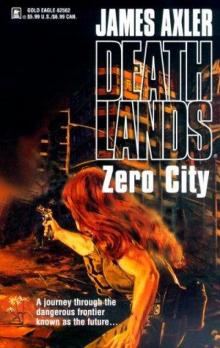 Zero City
Zero City Freedom Omnibus
Freedom Omnibus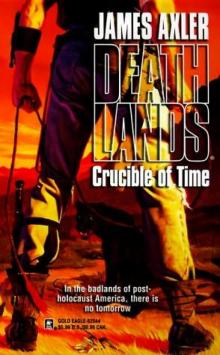 ACrucible of Time
ACrucible of Time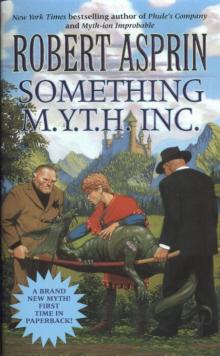 Something MYTH Inc
Something MYTH Inc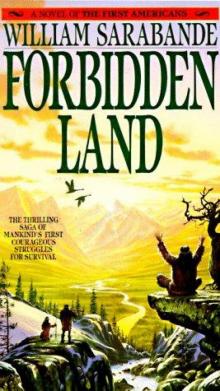 Forbidden Land
Forbidden Land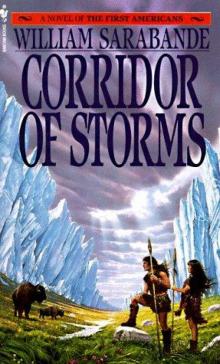 Corridor of Storms
Corridor of Storms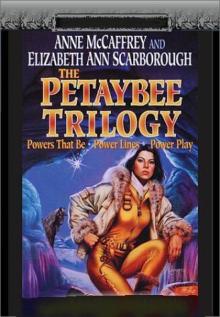 The Peytabee Omnibus
The Peytabee Omnibus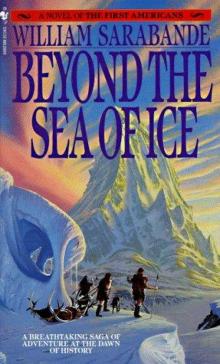 Beyond the Sea of Ice
Beyond the Sea of Ice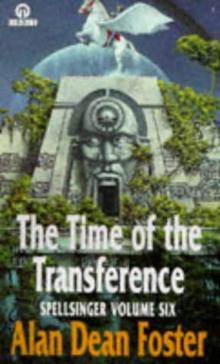 The Time Of The Transferance
The Time Of The Transferance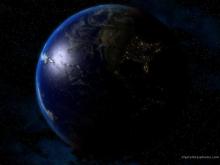 EarthBlood
EarthBlood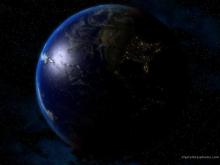 The Lexal Affair
The Lexal Affair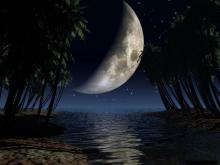 The Web
The Web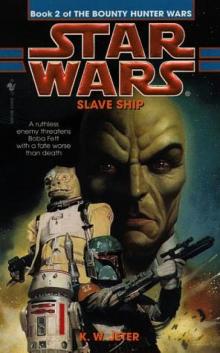 Slave Ship
Slave Ship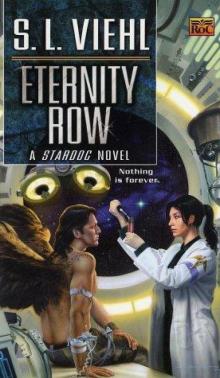 Eternity Row
Eternity Row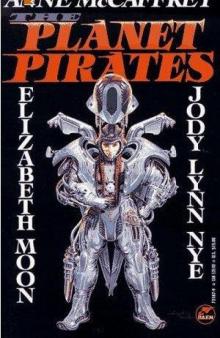 Planet Pirates Omnibus
Planet Pirates Omnibus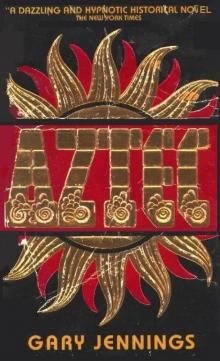 Aztec
Aztec The Awakening
The Awakening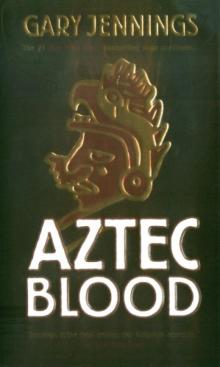 Aztec Blood
Aztec Blood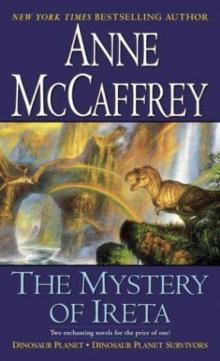 The Mystery of Ireta Omnibus
The Mystery of Ireta Omnibus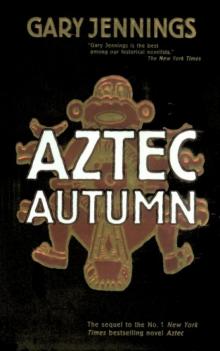 Aztec Autumn
Aztec Autumn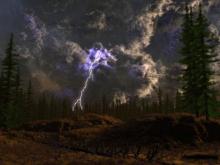 The Savage Horde
The Savage Horde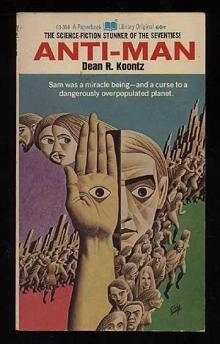 Anti - Man
Anti - Man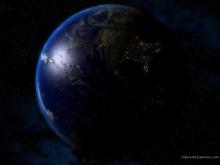 Deep Trek
Deep Trek Starfall
Starfall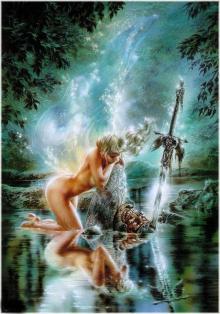 The Paths Of The Perambulator
The Paths Of The Perambulator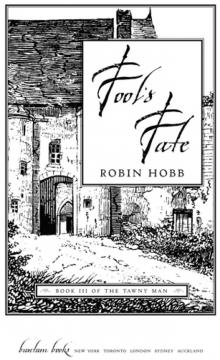 Fool's Fate
Fool's Fate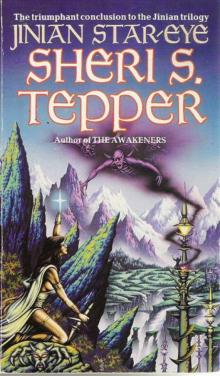 Jinian Stareye
Jinian Stareye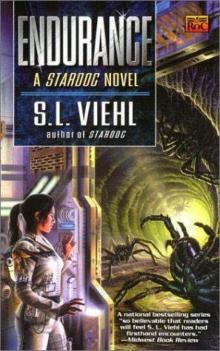 Endurance
Endurance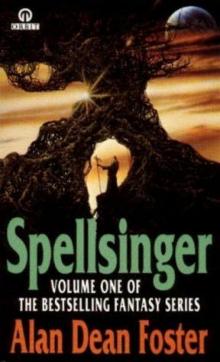 Spellsinger
Spellsinger Hybrids
Hybrids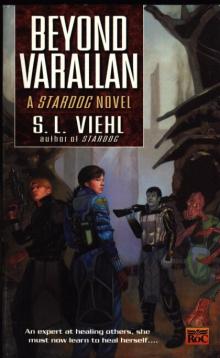 Beyond Varallan
Beyond Varallan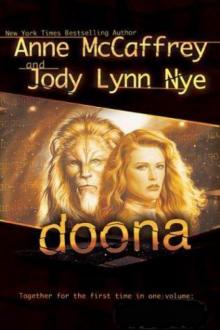 Doona Trilogy Omnibus
Doona Trilogy Omnibus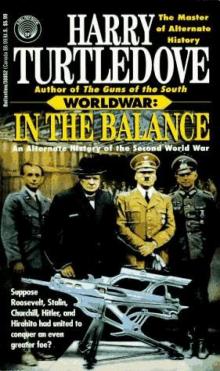 In th Balance
In th Balance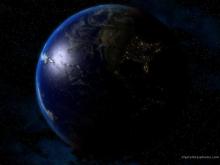 Planerbound
Planerbound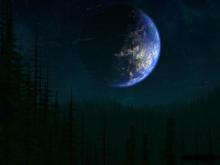 The Nightmare begins
The Nightmare begins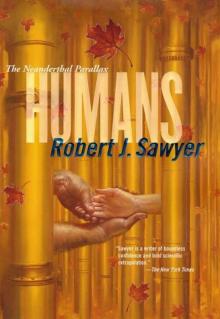 Humans
Humans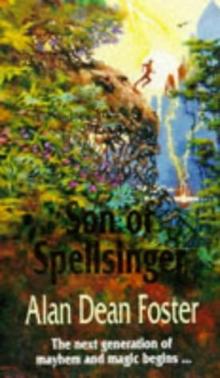 Son Of Spellsinger
Son Of Spellsinger